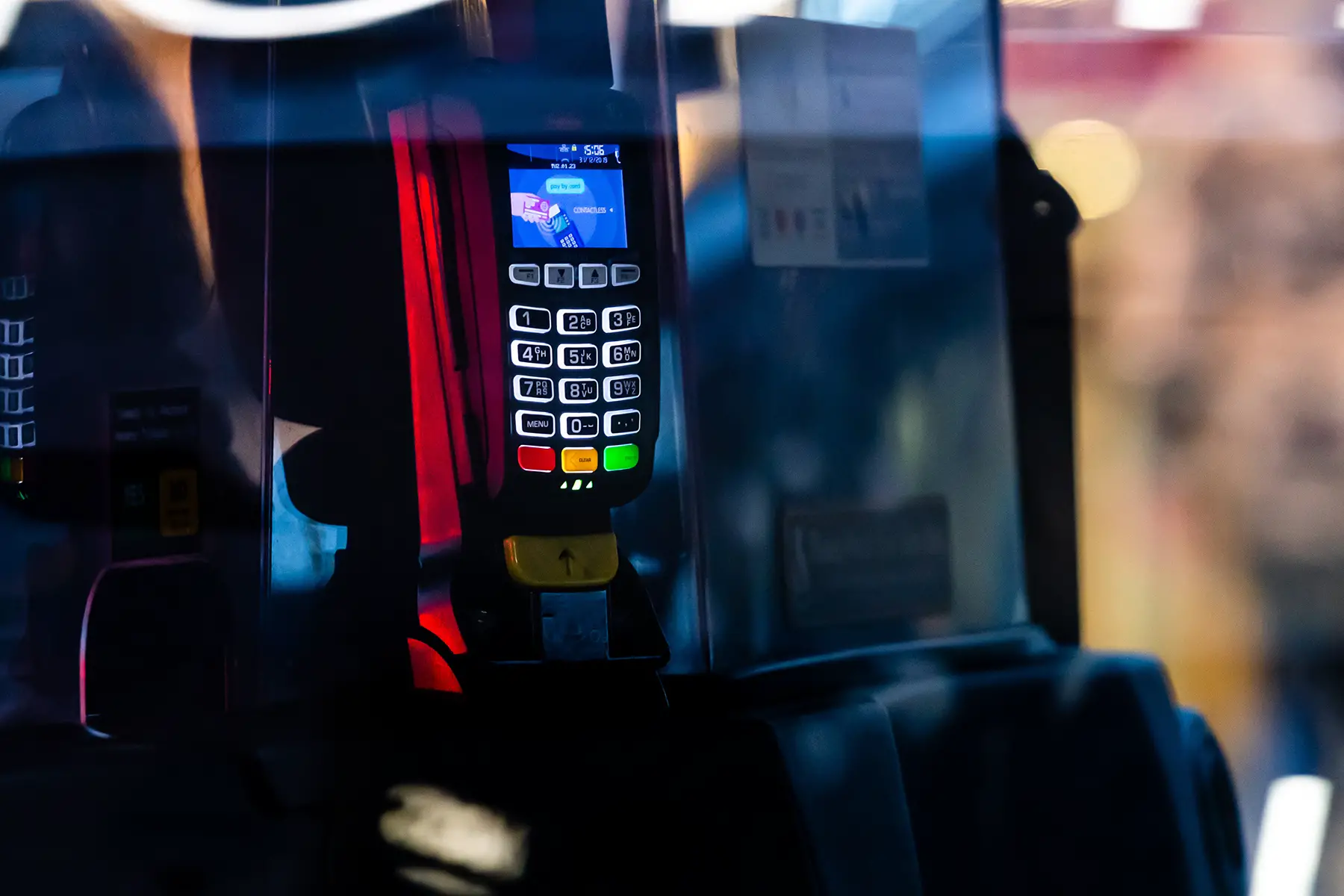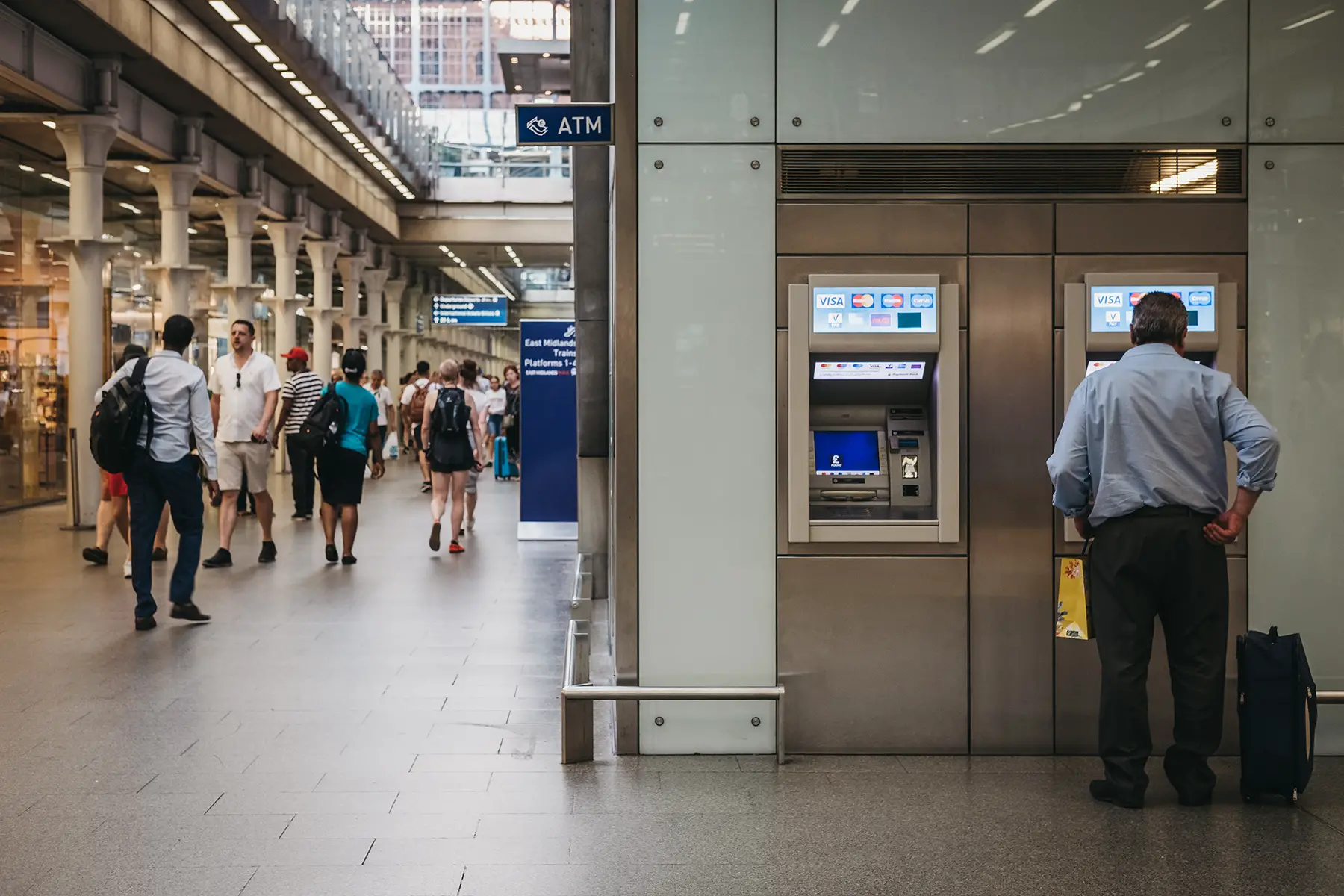Mobile banking in the UK hasn’t taken off in quite the same way as in some other European countries. It’s starting to catch on, though, with more customers moving towards mobile banking and mobile payment apps. This guide looks at what’s on offer in terms of mobile banking in the country, and covers the following:
Wise
Do your finances go beyond borders? Then you need a fast and secure way to move money internationally. Wise is a global leader in online international money transfers, letting you move money at an exchange rate several times cheaper than your bank. Whatever your personal or business needs, Wise can make your money go further.
Mobile banking in the UK
Statistics show that mobile banking in the UK is quickly on the rise. Although UK residents haven’t embraced this new technology as quickly as those in other countries, banking via smartphone is predicted to overtake online banking in 2019 and it’s forecast that around 72% of adults will use mobile banking apps by 2023.

According to Eurostat figures, the UK currently has the eighth-highest percentage of internet banking users in the EU. All main UK banking providers now offer both online and mobile banking. In addition, there are a number of online-only and mobile-only banks to choose from too.
Banks that offer mobile banking in the UK include:
- Barclays
- HSBC
- Lloyds Bank
- Metro Bank
- Nationwide
- NatWest
- Santander
Mobile banks and services offering online accounts in the UK include:
Features of mobile banking in the UK
Mobile banking is available through mobile banking apps in the UK which can be downloaded onto smartphones and tablets. Services and features vary slightly between banks. Many offer the possibility of mobile banking for a range of accounts including current accounts, savings accounts, and business accounts.
Mobile banking features include:
- Mobile payments, so that you can pay bills, go shopping, and make P2P payments to other mobile users.
- Money management and budgeting tools, including keeping track of loans and investments.
- 24/7 access to your account and instant bank mobile bank statements.
- International money transfers to multi-currency accounts.
- Online support including through social media channels such as Facebook and Twitter
- Enhanced security features
There are a few limitations. Not all banking services are available through apps at the moment, with mobile-only banks unlikely to offer the full range of services available through traditional banks such as loans, mortgage options, and insurance. Mobile banking in the UK is also reliant on good Wi-Fi coverage, which can be a problem in some rural and remote areas. However, in general, internet coverage in the UK is of good quality.
Mobile payments in the UK
Similar to mobile banking, mobile payments in the UK have become more common in recent years. A 2018 report by PwC showed that 53% of UK study respondents used their mobile device for their last bill payment, which was higher than the European average of 40% and ahead of countries such as Germany, France, and Spain, but behind the Netherlands and Belgium. This lower take-up rate has been put down to the popularity of contactless debit card payments in the UK.

Payments with a mobile device in the UK include bill payments from mobile devices, payments between individuals via smartphones, and contactless payments made using a mobile device rather than a debit or credit card. These use Near Field Communication (NFC) or QR matrix bar code technology where users wave their device over a payment point or scanner to pay.
There are various different mobile payment providers in the UK. Banks and building societies in the UK use systems such as Paym. This enables users to transfer payments to other individuals using mobile numbers rather than bank account details. Several big companies have mobile payment systems, or mobile wallets, which can be linked to bank accounts and installed on smart devices. Popular providers in the UK are Apple Pay, Google Pay, Samsung Pay, PayPal, and Amazon Pay.
How to open a mobile bank account in the UK
Opening a mobile bank account with a traditional bank
The process for opening a mobile account with a standard bank varies depending on whether or not you already have a traditional account with the bank and are registered for online banking.
- If you have an account and are registered for online banking, all you need to do is download the mobile banking app from the bank’s website and follow any instructions.
- If you have an account but are not registered for online banking, you will probably need to spend a few minutes first registering for online banking via the bank’s website before downloading the mobile banking app.
- What if you don’t have an account with the bank? You’ll need to open up an account before you can access mobile banking. See our guide to opening a bank account in the UK for more information.
Opening a mobile bank account with a mobile-only bank
This process usually only takes a matter of minutes. Many mobile banks don’t require you to provide any actual documentation but if they do, it will be a scanned online copy of the document. However, you will need to input personal information when signing up for an account. The exact process will depend on the mobile banking provider, but you will usually be required to open an account via the banks website and provide:
- Personal details such as full name, date of birth and registered address.
- Mobile number and email address.
- If you want to take advantage of the enhanced security features, you will need to provide biometric data (e.g. fingerprint or photo for face recognition) to protect your account with your own personal ID.
The whole process only takes a few minutes. There may be additional requirements for certain accounts (e.g. a minimum deposit for some savings accounts) but it’s possible for anyone, including expats and non-residents, to open a mobile account with many of the mobile banks.
Mobile banking fees
One of the advantages of mobile banking in the UK is the low costs for basic services. Most basic current accounts, ATM use, P2P payments, and general transactions are free. However, higher-level accounts (e.g., premium accounts) often come with a fixed monthly fee attached. Some mobile bank accounts also limit the number of free transactions you can make each month. For instance, there may be a limit to the number of times you can make ATM withdrawals, or a cap on mobile payment amounts, or number of payments you can make before you incur charges.

There is also likely to be the same or similar charges for things you would associate with traditional bank accounts, such as fees for going overdrawn, using credit cards linked to the account, fees attached to any loans, and so on. Ask the bank for a full detailed list of costs if you’re not sure about anything. You can also check this guide to banking in the UK for more information on bank charges.
Most mobile payments in the UK can be made free within the UK when using GBP, although some payment providers may want to charge small amounts for certain services, so again it’s wise to check beforehand with any provider you are thinking of using. Costs of payments to overseas accounts and accounts using other currencies depend on the mobile account you have, where the money is going, what currency is being used, and how much is being paid. International transfers can vary from £0-10, sometimes more for large amounts over £50,000.
Mobile banking security
The safety of online and mobile banking in the UK is a continuing concern and there have been a few news stories of online banking fraud and data breaches which have caused alarm. There were 21,700 cases of online banking fraud in the UK in 2017, costing around £120 million. However, security prevention measures saved UK banking customers twice the amount that was lost in 2017, and banks and other financial services are constantly working to improve security measures. Features on mobile accounts include biometric ID protection (fingerprint or face/voice recognition), strong encryption, and instant card-blocking features. Overall, the UK public appears less concerned than residents in many other European countries about breaches to financial data security, with 76% of consumers trusting banks to protect their data, according to one study.
To keep your personal data safe when mobile banking in the UK, make sure you:
- Use biometric ID protection if possible. If using password protection, choose a high-strength password and change it periodically.
- Avoid using public networks offering free WiFi when logging into your account
- Only make payments using a secure payment platform.
- Always log out of your account after using it.
If you feel you have been the victim of banking fraud or if your mobile device gets lost or stolen, contact your bank immediately to place a stop on transactions and notify the police. See here for a list of emergency numbers in the UK.
Useful resources
- Financial Conduct Authority (regulates banks and financial services in the UK)



